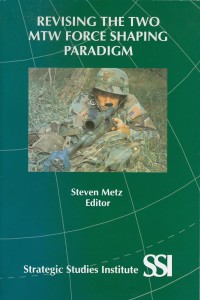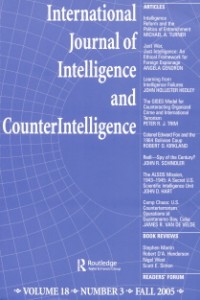Review: Orbiting the Giant Hairball–A Corporate Fool’s Guide to Surviving with Grace
4 Star, Change & Innovation, Consciousness & Social IQ
![]() Over the Top on Cute, Profound Insights, No Solutions
Over the Top on Cute, Profound Insights, No Solutions
September 4, 2001
Gordon MacKenzieI would never have bought this book off the shelf, because it is way over the top with cutesy child-like drawings, hard to read type, and other affectations–it goes beyond charming toward excessive cosmetics. It was, however, recommended by someone I trust, and I am glad I read it.
The two most profound insights, insights every teacher and CEO should be required to repeat every day, are that our schools beat creativity out of our children, and our corporations suppress individual ideas and any attempts at diversity.
I read this book twice. The first time, like a cat circling a mouse, I would pick it up and read just one of the stories, expecting to collect enough evidence to discard it completely, and instead being drawn back for another story at random. The second time, more sequentially, looking for the meat to review.
Unfortunately, absent a major revolution in how we manage our organizations, this book does not suggest solutions. Very few can survive on their own unless they are willing to drop down to subsistence living. The sad fact is we have a school system designed over 100 years to deskill people to the point they could work in assembly line jobs (including white collar “company man go along” jobs), and in the same 100 years have focused on building companies in which everyone is replaceable, and no one person can hope to do the business development, product development, service, and billing for any given offering.
Certainly the Internet offers some prospects–say 20 years down the road–for networks of “virtual corporations” to take effect, but in the meantime, I have to judge this book as a really excellent pate de foie gras, just the thing with which to torment the corporate slaves who want to dream of freedom.
Great book, something we can use in another 40 years or so, if we have managed to get a grip on campaign finance reform, neighborhood cottage and networked industries, and radically restructured schools that get away from rote and celebrate the process of learning. Until then, most people are going to have to focus on keeping the job they have, however distasteful it may be, because the harsh reality is that in this day and age, it is the large inefficient organization that provides gainful employment for the majority of us that have not been schooled to be anything other than drones.
I'll end on a positive note: there is something called the Davies J-Curve, a political science finding that suggests that people do not revolt to acquire greater freedom or anything else, but rather when they have experienced all that they wish, and then it is taken away from them. If we have a major recession that decapitates government and cleans out a good third of the small businesses and corporations that are hanging on by a string now, it may just inspire groups of people to revisit how they relate to one another.
One more positive note: if you are a realist, and you know that you have to accept drone status, but want to be cheered up and contemplate little ways around the margins where you can exercise some freedom muscles, this is the book for you. I enjoyed reading this book, and it may be unfair to evaluate it at the strategic level-there is no question that the author is an inspired original thinker, and I hope the day comes when he is the norm, rather than the exception.

Review: Killing Pablo–The Hunt for the World’s Greatest Outlaw
5 Star, Empire, Sorrows, Hubris, Blowback, Intelligence (Government/Secret), Military & Pentagon Power, Secrecy & Politics of Secrecy, War & Face of Battle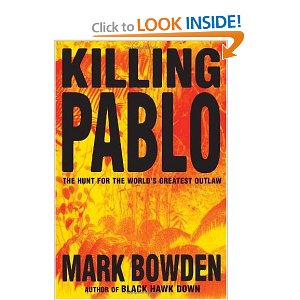
Mark Bowden
5.0 out of 5 stars Reveals US Sources & Methods, Weaknesses
July 25, 2001
Robert D. Steele (Oakton, VA United States) – See all my reviews
I remember being shocked when a book published by a former prisoner of war revealed all of the CIA's sources and methods for secret writing–one reason terrorists and others make photo-copies of incoming and outgoing correspondence these days….
This book provides an excellent overview of sensitive sources and methods used by the U.S. military to intercept and locate electronic transmissions. It specifically “blows” a cover company, two specific kinds of aircraft, and several U.S. Special Operations Forces standard operating procedures. I suspect that NSA and the CIA Centers dealing with terrorism and with crime and narcotics are having the same difficulties recovering from this book that NSA had when President Reagan inadvertently revealed in public that he was receiving transcripts of Politburo cell phone conversations made while in transit, from their car phones.
Having said that, I find that the author has performed very responsibly as an investigative journalist, and that his story is superior in every respect. I even find that he has withheld some key information out of respect for his sources,and that there are many lessons to be learned from this book about how we might improve our transnational campaign against non-state forces that have vastly more money, ruthlessness, and sheer people power than we do.
I like and recommend this book–it is a real-world story, well-researched and well-told.

Review: Global Brain–The Evolution of Mass Mind from the Big Bang to the 21st Century
5 Star, Change & Innovation, Complexity & Resilience, Consciousness & Social IQ, Culture, Research, Education (Universities), Future, Information Society, Intelligence (Collective & Quantum), Intelligence (Public), Values, Ethics, Sustainable Evolution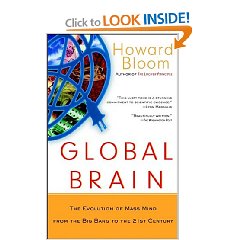
5 out of 5 Stars
Live and Let Die Group Dynamics, Bacteria Are Winning
July 13, 2001
Very very few books actually need to be read word for word, beginning with the bibliography and ending with the footnotes. This is one of those books. While there are some giant leaps of faith and unexplained challenges to the author's central premises (e.g. after an entire chapter on why Athenian diversity was superior to Spartan selection, the catastophic loss of Athens to Sparta in 404 BC receives one sentence), this is a deep book whose detail requires careful absorbtion.
I like this book and recommend it to everyone concerned with day to day thinking and information operations. I like it because it off-sets the current fascination with the world-wide web and electronic connectivity, and provides a historical and biologically based foundation for thinking about what Kevin Kelly and Stuart Brand set forth in the 1970's through the 1990's: the rise of neo-biological civilization and the concepts of co-evolution.
There are a number of vital observations that are relevant to how we organize ourselves and how we treat diversity. Among these:
2001 Threats, Strategy, and Force Structure: An Alternative Paradigm for National Security
Articles & Chapters, Strategy2001 IJIC 14/2 Hazardous Partnership: NGOs and United States Intelligence in Small Wars
Articles & Chapters, Intelligence (Government/Secret), Intelligence (Public), United Nations & NGOsReview: The Warning Solution–Intelligent Analysis in the Age of Information Overload
5 Star, Best Practices in Management, Complexity & Resilience, Country/Regional, Culture, Research, Empire, Sorrows, Hubris, Blowback, Force Structure (Military), Information Operations, Information Society, Insurgency & Revolution, Intelligence (Government/Secret), Intelligence (Public), Peace, Poverty, & Middle Class, Politics, Power (Pathologies & Utilization), Priorities, Secrecy & Politics of Secrecy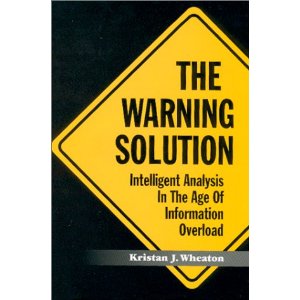
Kristan Wheaton
5.0 out of 5 stars Solving Major Problems Early for 1/50th of the Cost
July 4, 2001
I first heard Kris Wheaton lecture in Europe, and was just blown away by the deep understanding that he demonstrated of why commanders and CEOs are constantly missing the warnings their subordinates and forward scouts are sending back–the huge cost! Kosovo, for example, could have been a $1 billion a year problem if acted upon wisely and early, instead it became a $5 billion a year problem. I like this book very much because it makes his deep insights available to everybody in a very readable, well-illustrated, and concise book.
I strongly recommend this book because it offers the only thoughtful explanation I have ever seen on the conflict between the senior decision-maker's attention span (can only think about $50 billion problems) and the early warning that *is* available but cannot break through to the always over-burdened, sometimes arrogant, and rarely strategic top boss. In this regard, his book is a fine complement to the more historical work by Willard Matthias on “America's Strategic Blunders.”
This book also offers solutions. It is a book that should be required reading for all field grade officers in all military services, as well as state and local governors and majors, university and hospital and other non-profit heads, and of course the captains of industry who spend billions, often unwisely, because they have not established a scouting system that can be heard at the highest levels *in time*. America, among many other nations and organizations, has a habit of ignoring its iconoclasts and mavericks–in an increasingly complex world where catastrophic combinations of failure are going to be more common, such ignorance will eventually become unaffordable and threatening to the national security as well as the national prosperity of those who persist in thinking about old problems in old ways.
There is one other aspect of this book that merits strong emphasis: it focuses on human understanding and human engagement with the world, and makes it clear that technology has almost nothing to do with how well we cope with the external environment that defines our future. There aren't five people in the US government, to take one example, that adequately understand the rich intellectual history of Islam nor the core difference between the Islamic emphasis on knowledge integration as the core value and the Christian emphasis on love as the core value. The author of this book is one of America's foremost authorities on the Balkan conflict and the deep importance of historical and cultural understanding as part of current political and operational competency–we need 1000 more intelligence professionals just like him. This book will inspire and provoke and is a great value for anyone who deals with the world at large.




